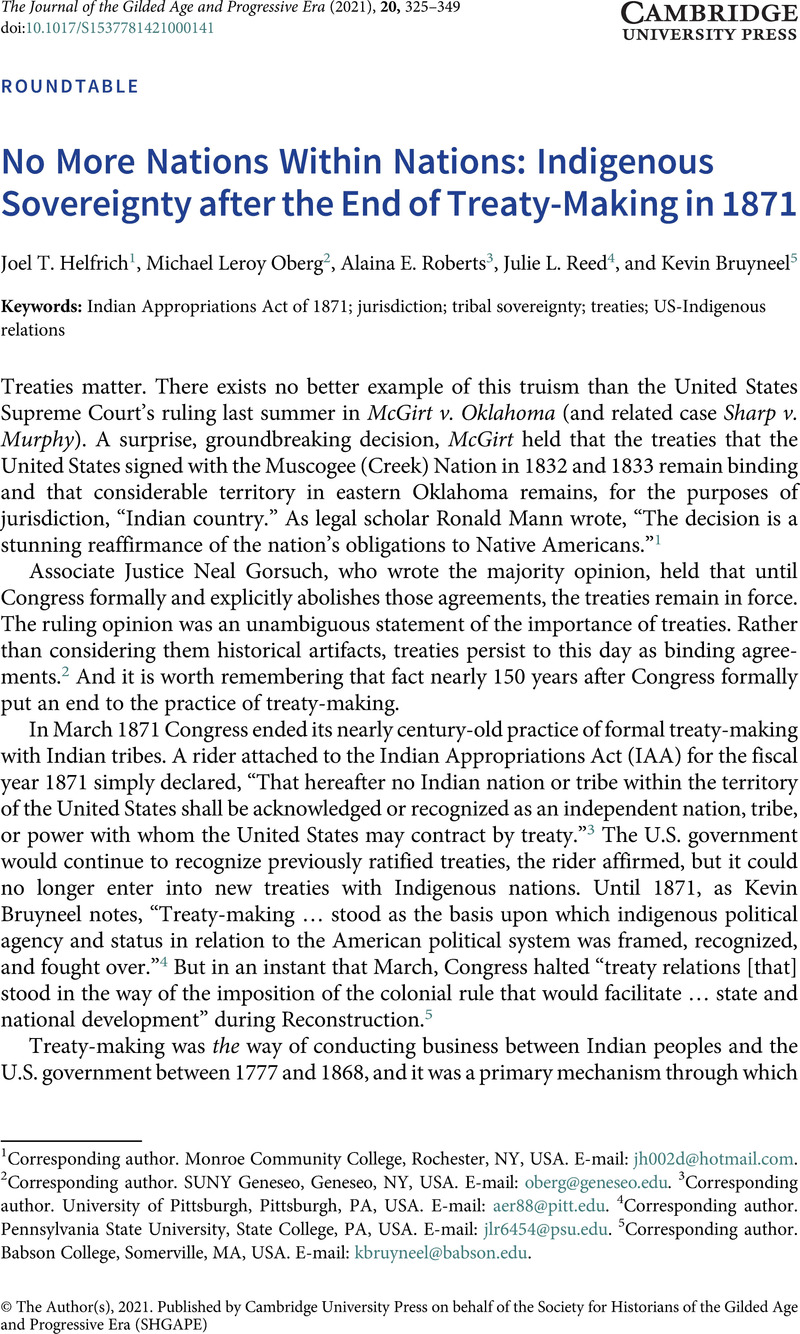No CrossRef data available.
Article contents
When Is the Past Not the Past?
Published online by Cambridge University Press: 22 April 2021
Abstract

- Type
- Roundtable
- Information
- The Journal of the Gilded Age and Progressive Era , Volume 20 , Issue 2 , April 2021 , pp. 345 - 348
- Copyright
- © The Author(s), 2021. Published by Cambridge University Press on behalf of the Society for Historians of the Gilded Age and Progressive Era (SHGAPE)
References
Notes
1 U.S. Statutes at Large 16:566, excerpted in Prucha, Francis Paul, ed., Documents of United States Indian Policy (Lincoln: University of Nebraska Press, 1990), 136 Google Scholar.
2 Bruyneel, Kevin, The Third Space of Sovereignty: The Postcolonial Politics of U.S.-Indigenous Relations (Minneapolis: University of Minnesota Press, 2007)Google Scholar.
3 See Deloria, Vine Jr. and DeMallie, Raymond J., Documents of American Indian Diplomacy: Treaties, Agreements, and Conventions, 1775–1979 (Norman: University of Oklahoma Press, 1999), 233 Google Scholar; Prucha, Frances Paul, American Indian Treaties: The History of a Political Anomaly (Berkeley: University of California Press, 1994), 312 CrossRefGoogle Scholar.
4 Reverend Dr. William J. Barber II, with Jonathan Wilson-Hartgrove, The Third Reconstruction: Moral Mondays, Fusion Politics, and the Rise of a New Justice Movement (Boston: Beacon Press, 2016).
5 Du Bois, W.E.B., Black Reconstruction in America, 1860–1880 (New York: The Free Press 1935), 30 Google Scholar.
6 McGirt v. Oklahoma, https://www.supremecourt.gov/opinions/19pdf/18-9526_9okb.pdf (accessed July 9, 2020).
7 Hoxie, Frederick E., ed., Encyclopedia of North American Indians (Boston: Houghton Mifflin: 1996), 647 Google Scholar.
8 See Cutlip, Kimbra, “In 1868, Two Nations Made a Treaty, the U.S. Broke It and Plains Indian Tribes Are Still Seeking Justice,” Smithsonian Magazine, Nov. 7, 2018, https://www.smithsonianmag.com/smithsonian-institution/1868-two-nations-made-treaty-us-broke-it-and-plains-indian-tribes-are-still-seeking-justice-180970741/ (accessed July 9, 2020)Google Scholar.


